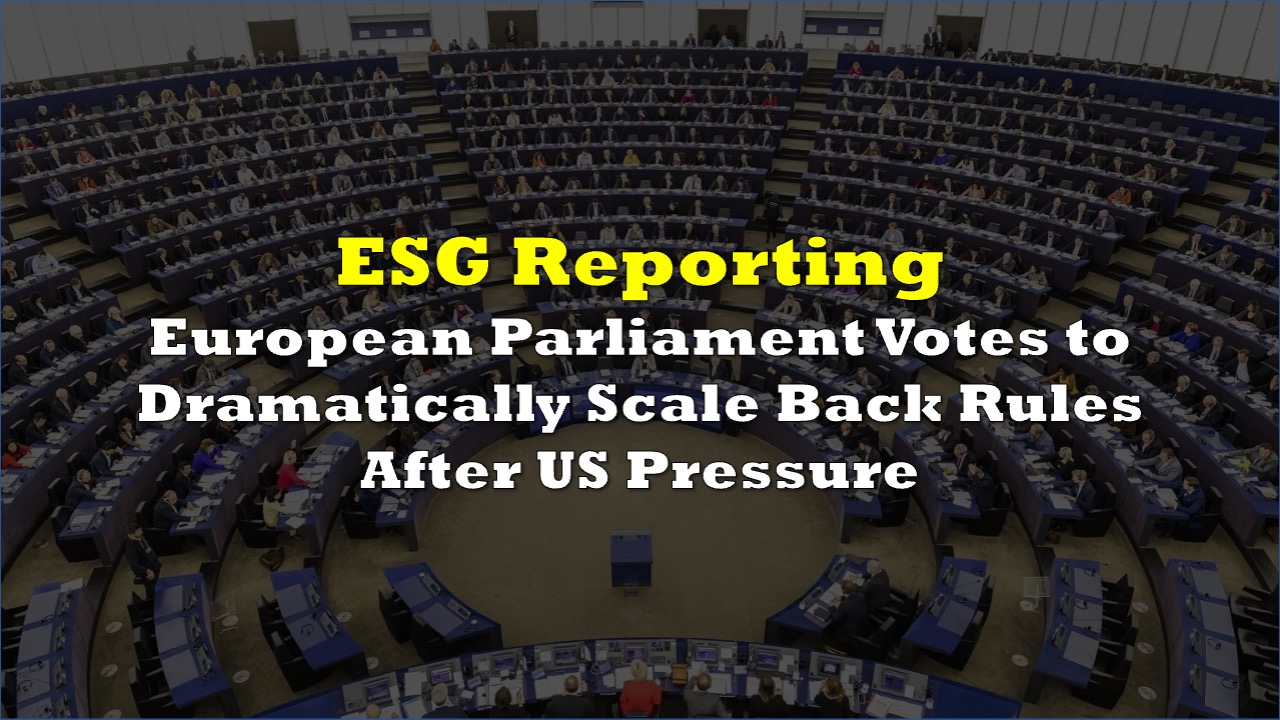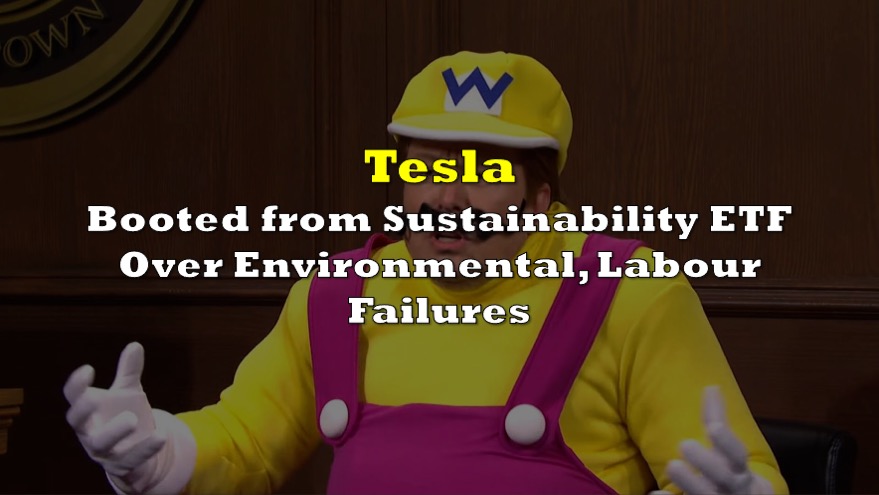The European Parliament voted Thursday to dramatically reduce the scope of the European Union’s environmental and social governance reporting requirements, exempting more than 90% of companies originally subject to the regulations following intense pressure from United States business groups and state officials.
Lawmakers approved the measure 382-249, marking a significant retreat from the bloc’s ambitious sustainability agenda. The vote affects two key directives: the Corporate Sustainability Reporting Directive and the Corporate Sustainability Due Diligence Directive.
Under the approved changes, only companies with more than 5,000 employees and revenues exceeding 1.5 billion euros will face due diligence requirements. The mandate for companies to prepare climate transition plans has been eliminated entirely.
The rollback follows a pressure campaign by US business associations and a letter from 16 US state attorneys general warning major American companies, including Microsoft, Google and Meta, against complying with EU sustainability rules. The attorneys general threatened legal action, citing potential violations of US law.
US Department of Energy officials and representatives from Qatar also warned that the due diligence directive could threaten liquefied natural gas exports to Europe.
The vote came after the European People’s Party, the Parliament’s largest political group, aligned with far-right parties to push through the changes. A more moderate compromise proposal was narrowly defeated in October by a 318-309 vote.
The legislation now moves to negotiations between Parliament and EU member states, with officials aiming to finalize the package by year’s end. The EU Council adopted a less aggressive position in June, setting up potentially contentious negotiations.
Critics say the changes undermine Europe’s leadership on corporate sustainability and climate action. Richard Gardiner, interim head of EU policy at ShareAction, said the vote “risks not only gutting the impact of landmark laws like the CSDDD and CSRD but drives a stake through the heart of Europe’s wider sustainability agenda.”
Supporters argue the simplification will boost European competitiveness and reduce bureaucratic burdens on businesses while maintaining core sustainability principles.
The original reporting requirements were set to take effect in phases between 2025 and 2029, affecting thousands of companies operating in the EU market.
Information for this story was found via Bloomberg, and the sources and companies mentioned. The author has no securities or affiliations related to the organizations discussed. Not a recommendation to buy or sell. Always do additional research and consult a professional before purchasing a security. The author holds no licenses.









